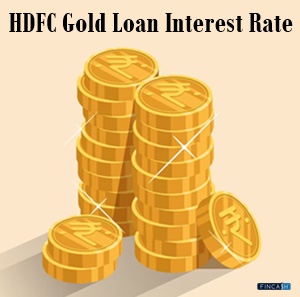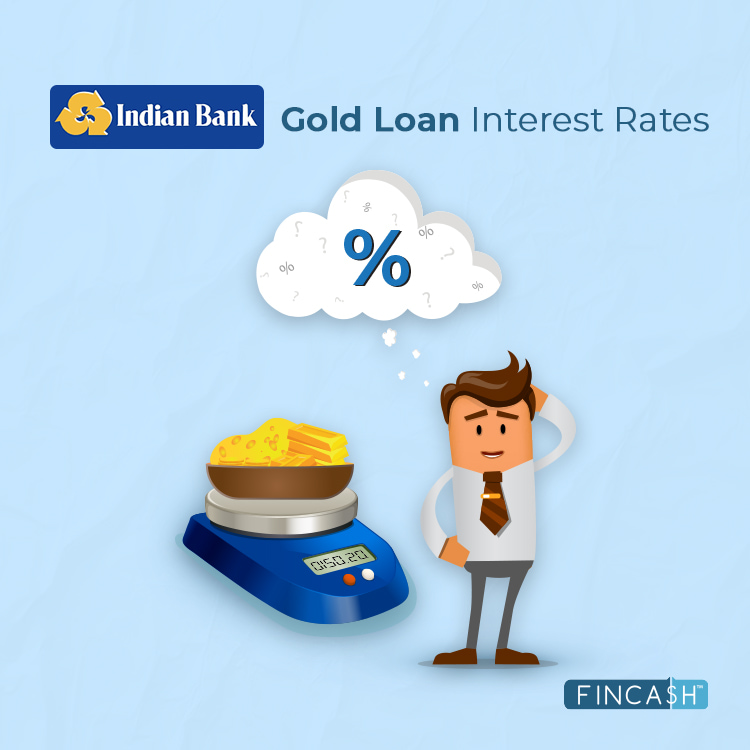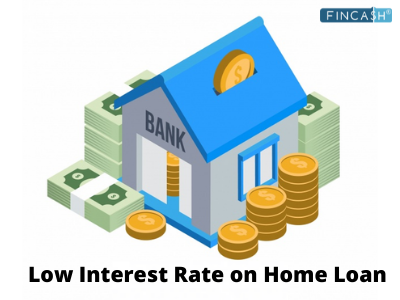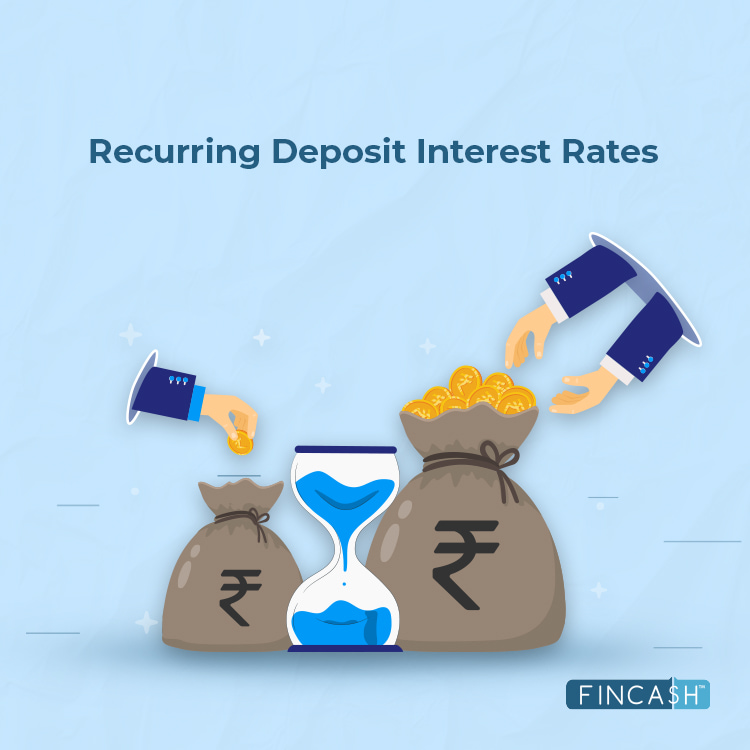
Table of Contents
- Latest Gold Loan Interest Rates in India
- Best Banks for Gold Loan in India
- Factors Affecting Gold Loan Interest Rates in India
- How to get a Gold Loan with Low Interest?
- Future Outlook for Gold Loans in India
- The Bottom Line
- Frequently Asked Questions (FAQs)
- 1. Can the gold loan interest rate change during the loan tenure?
- 2. How is the gold loan interest rate calculated?
- 3. Is it possible to negotiate the gold loan interest rate with the lender?
- 4. Can a borrower switch from a fixed interest rate to a floating interest rate or vice versa during the loan tenure?
- 5. Is there any tax benefit on gold loan interest paid?
- 6. Which bank offers best interest rate on a gold loan?
- 7. How much loan can I get for 1g of gold?
- 8. What is the interest of a 1 lakh gold loan in SBI?
- 9. Which is the cheapest gold loan?
Gold Loan Interest Rates in India 2025
Gold has been a cherished asset in India for centuries and continues to hold immense value for the country's Economy. With gold prices skyrocketing, individuals seek ways to leverage this valuable asset to meet their financial needs. One such option is a gold loan, where individuals can pledge their gold and get funds in return. However, the interest rate is one crucial Factor to consider before opting for a gold loan.
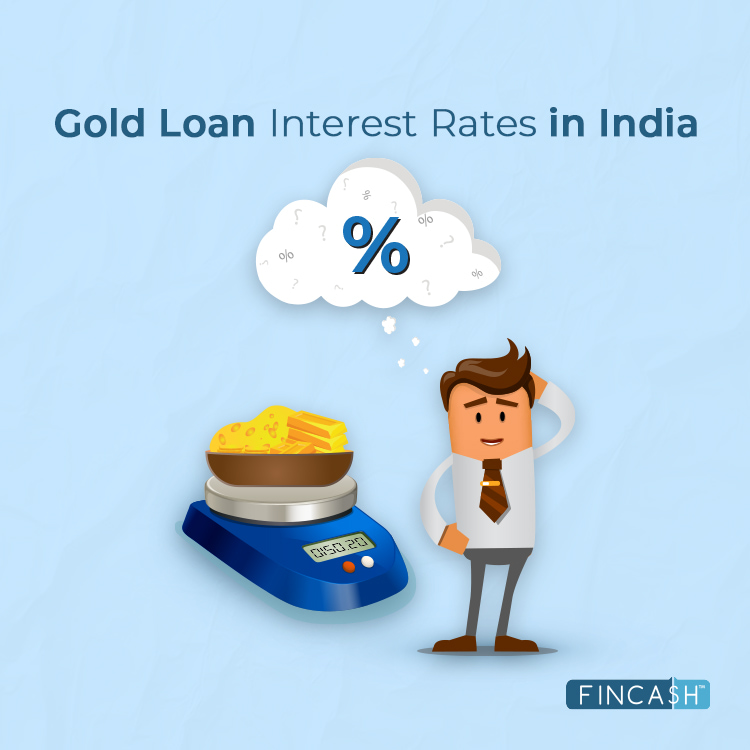
In this article, you'll delve into India's gold loan interest rates and everything you need to know about them.
Latest Gold Loan Interest Rates in India
Gold loan interest rates in India vary among different lenders and depend on various factors such as the loan amount, loan tenure, and the purity of gold. Typically, interest rates for gold loans in India Range from 7% to 29%. Here is the overview of gold loan interest rates in India.
| Name of the Bank | Interest Rate | Loan Amount |
|---|---|---|
| Axis Bank Gold Loan | 13.50% p.a.to 16.95% p.a | Rs.25,001 to Rs.25 lakhs |
| Bank of Baroda Gold Loan | 8.85% p.a. onwards | Up to Rs.50 lakhs |
| Bank of India Gold Loan | 7.80% to 8.95% per annum | Up to Rs.50 lakhs |
| Bank of Maharashtra Gold Loan | 7.10% p.a. | Up to Rs.20 lakhs |
| Canara Bank Gold Loan | 7.35% p.a. | Rs.5,000 to Rs.35 lakhs |
| Federal Bank Gold Loan | 8.89% p.a. onwards | Up to Rs.10 lakhs |
| HDFC Bank Gold Loan | 11% p.a. to 16% p.a. | Rs.10,000 onwards |
| IDBI Bank Gold Loan | 5.88% per annum | Up to Rs. 1 crore |
| IIFL Bank Gold Loan | 6.48% p.a. - 27% p.a. | Rs.3,000 onwards |
| IOB Gold Loan | 5.88% per annum | Up to Rs. 1 Crore |
| Indian Bank Gold Loan | 8.95% - 9.75% | Up to Rs. 1 Crore |
| Indulsnd Bank Gold Loan | 11.50% p.a. - 16.00% p.a. | Up to Rs.10 lakhs |
| Karnataka Bank Gold Loan | 11.00%p.a. | Up to Rs. 50 lakhs |
| Kotak Mahindra Gold Loan | 10.00% p.a. - 17.00% p.a. | Rs.20,000 to Rs.1.5 crore |
| KVB Gold Loan | 8.05% - 8.15% | Up to Rs. 25 lakhs |
| Manappuram Gold Loan | 9.90% p.a. to 24.00% p.a. | As per the requirement of the scheme |
| Muthoot Gold Loan | 12% p.a. to 26% p.a. | Rs.1,500 onwards |
| PNB Gold Loan | 7.70% p.a. to 8.75% p.a. | Rs.25,000 to Rs.10 lakhs |
| SBI Gold Loan | 7.00% p.a. onwards | Rs.20,000 to Rs.50 lakhs |
| Union Bank Gold Loan | 8.65% p.a. to 10.40% p.a. | As per the requirement of the scheme |
| ICICI Gold Loan | 10.00% p.a. to 19.76% p.a. | Rs. 10,000 to Rs. 10,000,000 |
Talk to our investment specialist
Best Banks for Gold Loan in India
1. Mannappuram Gold Loan
- It offers an interest rate of up to 24% p.a.
- You can avail a loan amount of Rs. 1,000 to Rs. 1.5 crore
- The tenure period of this institution starts from 3 months
2. SBI Gold Loan
- SBI offers a gold loan with an interest rate starting from 7.00% p.a
- Borrowers can avail a loan amount of Rs. 20,000 to Rs. 50,00,000
- The tenure period of the SBI gold loan is up to 3 years
3. HDFC Gold Loan
- HDFC offers gold loans starting at 16% p.a.
- You can take the loan starting from Rs. 10,000
- The tenure period of the HDFC gold loan starts from 6 months and goes up to 4 years
4. ICICI Gold Loan
- ICICI offers a gold loan with an interest rate starting from 10% p.a.
- You can avail a loan between Rs. 10,000 to Rs. 10,00,000
- The tenure period of this loan falls between 6 months to 1 year
5. Axis Gold Loan
- Axis gold loan attracts 13.50% to 16.95% interest rate per annum
- Borrowers can avail a gold loan amount of a minimum Rs. 25,001 to a maximum of Rs. 20,00,000
- The tenure of Axis gold loan is between 6 months to 3 years
6. Union Bank Gold Loan
- The Union Bank offers a gold loan with an interest rate upto 10.40% p.a.
- The maximum gold loan amount you can avail is Rs. 20 lakh for the priority sector and Rs. 10 lakh for non-priority sector
- The gold loan tenure is customised
7. Muthoot Finance Gold Loan
- Muthoot finance gold loan interest rate starts from 12.00% to 26.00% p.a.
- You can avail gold loan starting from Rs. 1,500 and there is no maximum amount limit
- The gold loan tenure ranges from 7 days to 3 years
Factors Affecting Gold Loan Interest Rates in India
The interest rate on a gold loan in India is affected by several factors, such as:
Loan-to-Value (LTV) Ratio
The loan-to-value ratio is the proportion of the value of the gold pledged to the loan amount sanctioned by the lender. The higher the loan-to-value ratio, the higher the risk for the lender. Therefore, lenders charge a higher interest rate for loans with a higher LTV ratio.
Gold Prices
The interest rate on a gold loan is directly proportional to the gold prices prevailing in the Market. When the gold prices are high, lenders may offer a lower interest rate to attract more borrowers, and vice versa.
Loan Tenure
The loan tenure refers to the duration for which the loan is sanctioned. Typically, gold loans have a shorter loan tenure compared to other secured loans. The interest rate on a gold loan may vary depending on the loan tenure, with longer tenures usually attracting higher interest rates.
Credit Score
Although gold loans are secured loans, some lenders may consider the borrower's Credit Score before sanctioning the loan. A higher credit score indicates the borrower's creditworthiness, and lenders may offer a lower interest rate to such borrowers.
Competition
The gold loan market in India is highly competitive, with several lenders Offering similar products. To attract more borrowers, lenders may offer competitive interest rates, making it essential for borrowers to compare the interest rates offered by different lenders before availing of a gold loan.
Economic Conditions
Economic Conditions, such as Inflation and interest rates, can also affect the interest rate on a gold loan. In times of inflation, lenders may charge a higher interest rate to Offset the inflationary pressures.
How to get a Gold Loan with Low Interest?
To get a gold loan with low-interest rates in India, you can follow these steps:
Research Different Lenders: Research various lenders offering gold loans, such as banks, Non-Banking Financial Companies (NBFCs), and online lenders. Compare their interest rates, loan amount, repayment tenure, and other terms and conditions
Check Eligibility Criteria: Check the eligibility criteria of the lenders you shortlist. Typically, the eligibility criteria for gold loans include the age of the borrower, gold ownership, and loan amount
Assess the Value of your Gold: Get your gold appraised by a certified appraiser to assess its value. The loan amount you can get depends on the value of your gold
Apply for the Loan: Once you have shortlisted the lender, apply for the gold loan. You will need to submit the required documents, including ID proof, address proof, and gold ownership proof
Negotiate the Interest Rate: Negotiate the interest rate with the lender to get the best deal. If you have a Good Credit score, you may be able to negotiate a lower interest rate
Repay the Loan on Time: Ensure that you repay the loan on time to avoid penalty charges and damage to your credit score
Future Outlook for Gold Loans in India
The future outlook for gold loans in India appears promising. Moreover, the RBI's decision to increase the loan-to-value ratio for gold loans from 75% to 90% has made it easier for borrowers to avail of higher loan amounts against their gold jewelry or ornaments. Additionally, the increasing availability of digital platforms and technology has made the process of availing and managing such a loan more convenient for borrowers. With the current trend, it is likely that the demand for gold loans will continue to rise in India, making it an attractive market for lenders.
The Bottom Line
Gold loan interest rates in India can vary from lender to lender and depend on various factors, such as the loan amount, loan tenure, and the value of the gold jewelry or ornaments pledged as Collateral. With the current economic situation, gold loans can be a convenient and affordable way to meet financial requirements. It is important to do thorough research and compare the interest rates offered by different lenders before taking a gold loan. Moreover, borrowers should ensure timely repayment of the loan to avoid any penalties or legal consequences.
Frequently Asked Questions (FAQs)
1. Can the gold loan interest rate change during the loan tenure?
A: The gold loan interest rate is generally fixed for the loan tenure. However, some lenders may have a Floating Interest Rate that can change depending on the market conditions.
2. How is the gold loan interest rate calculated?
A: The gold loan interest rate is calculated based on the loan amount, the value of the gold jewelry or ornaments pledged as collateral, and the loan tenure. Generally, the higher the loan amount and loan tenure, the higher the interest rate.
3. Is it possible to negotiate the gold loan interest rate with the lender?
A: Yes, it is possible to negotiate the gold loan interest rate with the lender. However, the negotiation depends on various factors such as the loan amount, loan tenure, credit score, and market conditions.
4. Can a borrower switch from a fixed interest rate to a floating interest rate or vice versa during the loan tenure?
A: Yes, some lenders may allow borrowers to switch from a Fixed Interest Rate to a floating interest rate or vice versa during the loan tenure. However, there may be certain conditions and charges associated with the switch, which the borrower needs to check with the lender.
5. Is there any tax benefit on gold loan interest paid?
A: Yes, the interest paid on a gold loan is eligible for tax Deduction under Section 80C of the income tax Act. However, the maximum deduction allowed is up to Rs. 1.5 lakh per financial year, which includes other eligible investments such as provident fund, Life Insurance premium, etc.
6. Which bank offers best interest rate on a gold loan?
A: The Central Bank of India offers the best gold loan with the lowest interest rate.
7. How much loan can I get for 1g of gold?
A: When taking out a loan against 18-carat gold, you can qualify for a gold loan amounting to Rs. 2,700 per gram of gold. On the other hand, if you opt for a loan against 22-carat gold, the gold loan rate per gram offered is higher at Rs. 3,329.
8. What is the interest of a 1 lakh gold loan in SBI?
A: With the State Bank of India (SBI) Gold loan, you can avail of a low-interest rate of 7.50%, resulting in a minimum EMI of Rs. 3,111 per Rs. 1 lakh borrowed.
9. Which is the cheapest gold loan?
A: The Central Bank of India offers the cheapest gold loan with the lowest interest rate.
All efforts have been made to ensure the information provided here is accurate. However, no guarantees are made regarding correctness of data. Please verify with scheme information document before making any investment.
